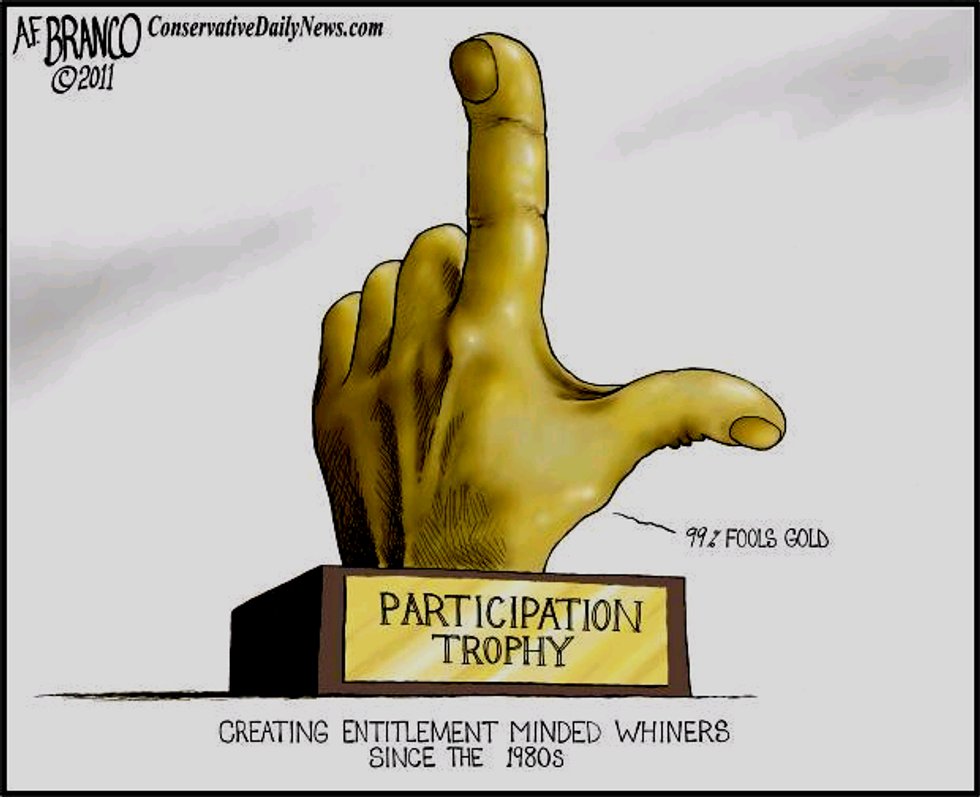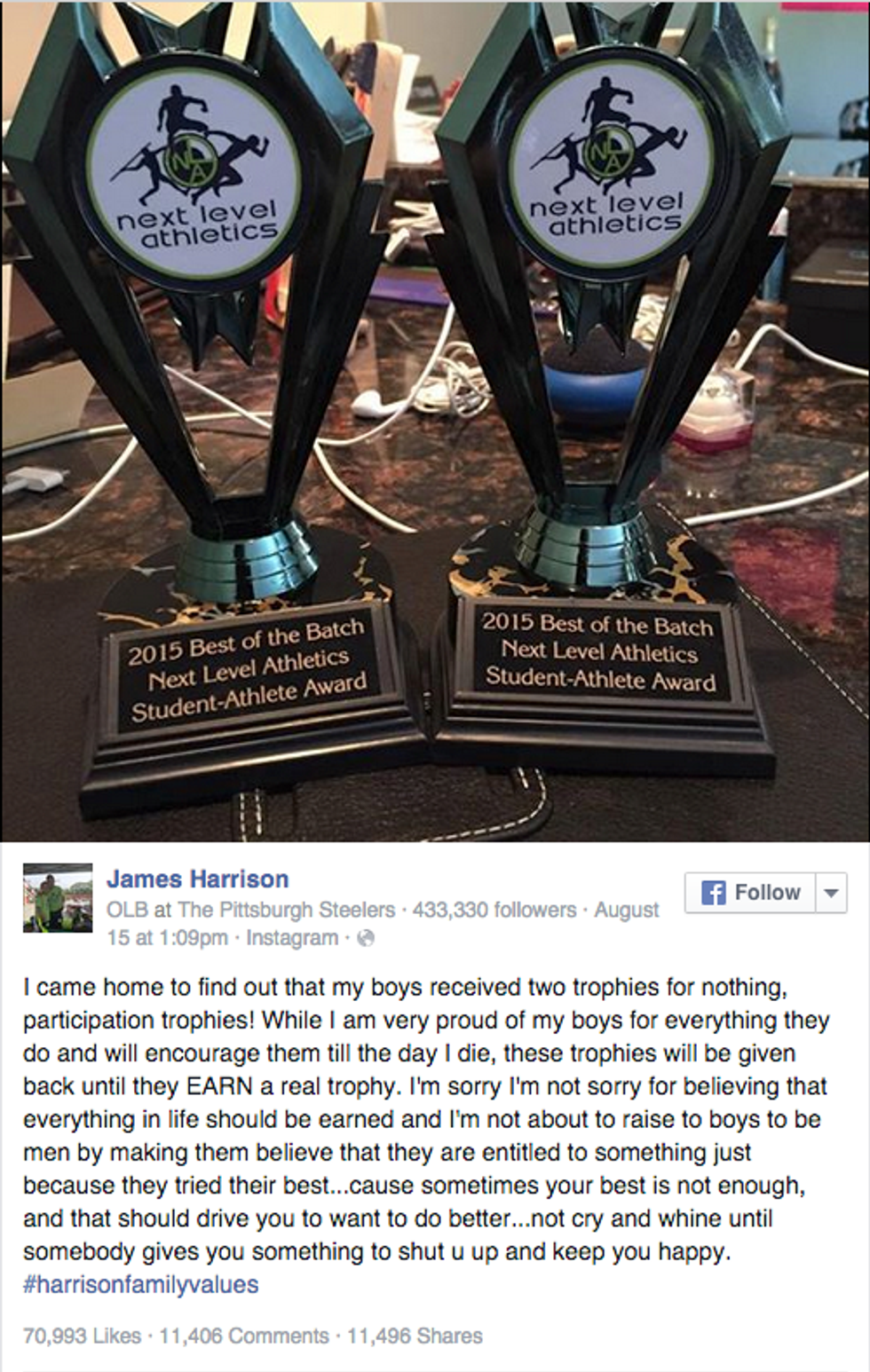The participation trophy: a commemorative relic resigned to shelves and boxes across the country, is now a hot-button issue in American society athletically, psychologically and even politically.
Some argue that presenting both winners and losers with trophies fosters what Psychology Today referred to as "a nation of wimps" who feel entitled. The other side of the argument is that the awards motivate and encourage children. Hilary Levey Friedman interviewed 37 children for her book "Playing to Win: Raising Children in a Competitive Culture" and found that kids knew what they got their trophies for and why. Kenneth Barish, a clinical associate professor of psychology at Weill Cornell Medical College, said he sees no harm in adults using a trophy to encourage participation, and that he's found no evidence the practice leads to entitlement.
"To be honest I don't even really like trophies or medals in general," stated Allie Godfrey, 19. "You take pictures with them and then they sit on a shelf and collect dust. I would rather win a t-shirt or something. It's more the glory of winning and bragging that I like." Godfrey was one of the captains of a back-to-back state champion basketball team in high school.
In 2015, Pittsburgh Steelers linebacker James Harrison sparked commentary when he posted images of his sons' participation trophies stating that he was going to confiscate them.
While many concurred that the boys should learn that we don't win at life 100 percent of the time and that everything in life should be earned, Kevin Kilgour of The Emory Wheel stated, "I find it unlikely that Harrison declines his paycheck following a Steelers loss, nor that he feels any better about the loss despite his reward. Likewise, participation trophies in no way deceive children into being satisfied with losing."
Yet high school student Betty Berdan in her New York Times article "Participation Trophies Send a Dangerous Message," wrote that, "When awards are handed out like candy to every child who participates, they diminish in value. If every soccer player receives a trophy for merely showing up to practice and playing in games, the truly exceptional players are slighted... Trophies for all convey an inaccurate and potentially dangerous life message to children: We are all winners... We begin to expect awards and praise for just showing up—to class, practice, after-school jobs—leaving us woefully unprepared for reality. Outside the protected bubble of childhood, not everyone is a winner."

"Life does not have a 'winners' podium'," he wrote, "not if life means being a good, conscientious person who measures success not merely by money made or career title held."
Others point out that it is not the children who ask for, distribute or manufacture awards, but rather parents and coaches. One article from CNN cites the financial incentive, that some classes and camps need to distribute awards in order keep both kids and parents happy so that they want to come back.
Meanwhile, many millennials supposedly affected by this plaque of entitlement seem to place their opinions on the matter on a spectrum.
One freshman soccer player at the University of Dayton believes it is a matter of the age of the participants.
"I think when you start hitting the age for real competition and not just for recreational fun, participation trophies should stop. For super little kids I think they are fine. I stopped getting participation trophies when I hit select soccer age, which was at 11 years old."
Tanios "Tony" Dagher, a college freshman who played varsity volleyball all four years of high school, disapproves of participation trophies because they give kids the wrong idea about the benefits of athletics.
"A child shouldn't need to get a trophy as a reward for playing a sport. The reward is being able to have fun and take care of their body. It is just reinforcing the notion that you play a sport to be good and get a reward."
The real reward, Dagher believes, is intangible.
Others expound that the debate itself is an irrelevant construct rather than a real, pressing social concern.
"It is in effect both a way for baby boomers to complain about millennials, but it's them who also were the coaches who wanted the trophies. Five-year-olds aren't the ones suggesting they get trophies. It's more...parents worrying about their kids too much," explained one student at The Ohio State University.
The question it all seems to boil down to is how much of an impact a participation trophy really has on a child's values as they grow into adulthood. Is it "softening" America, setting the scene for adults who don't know how to handle loss, or is it simply a harmless tool of encouragement? Or, in the face of other nationwide and global crises, is the matter not worth debating?


















